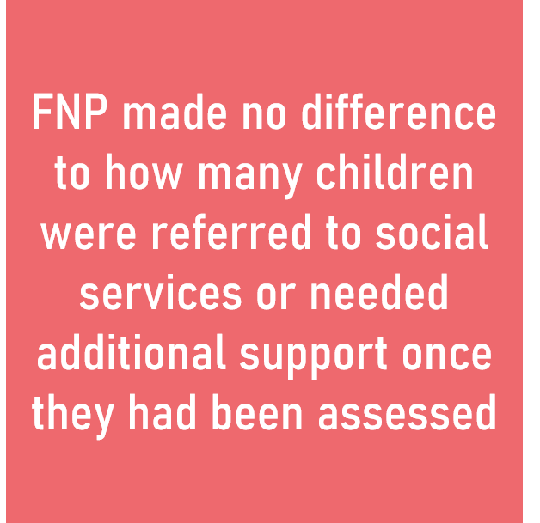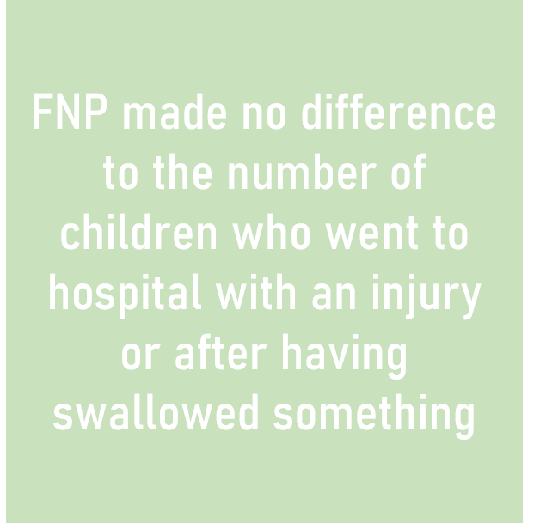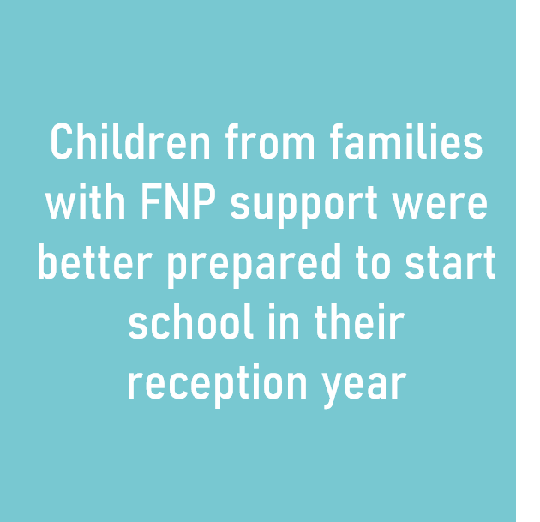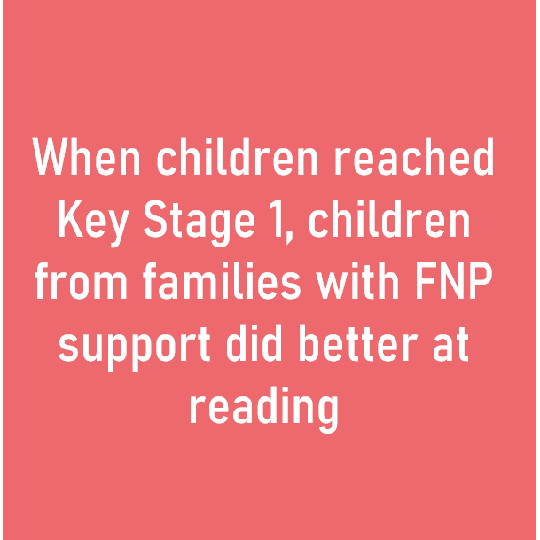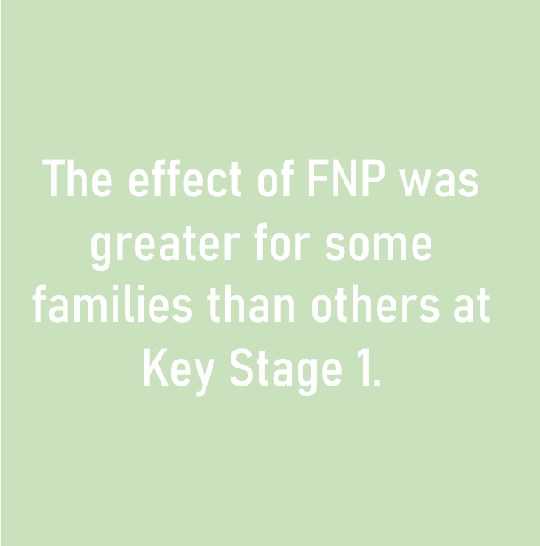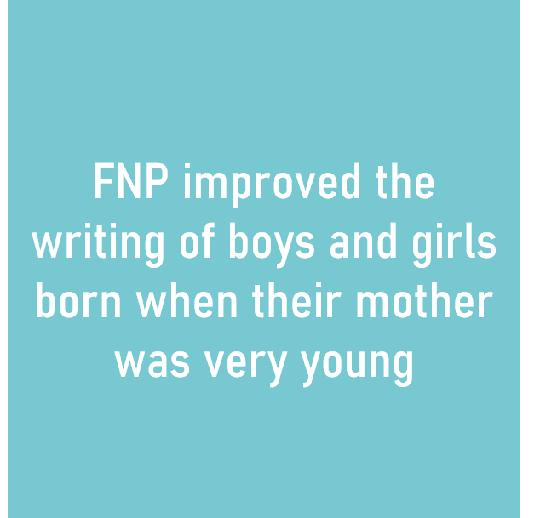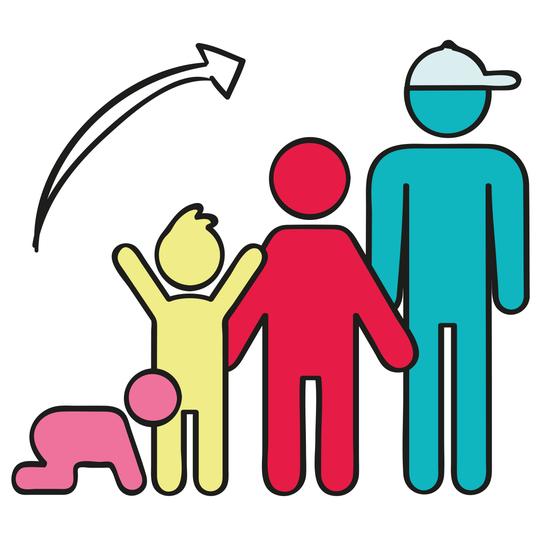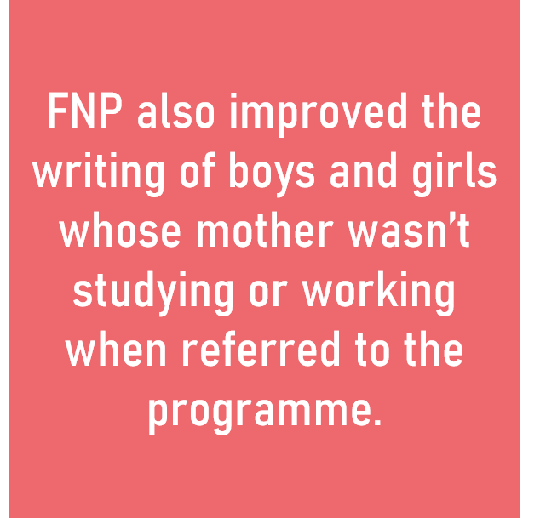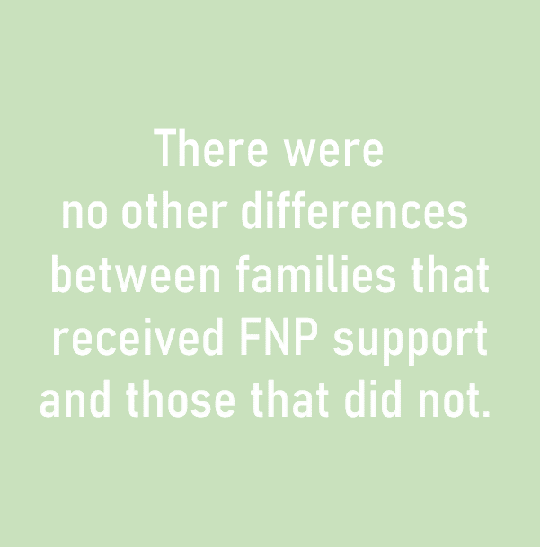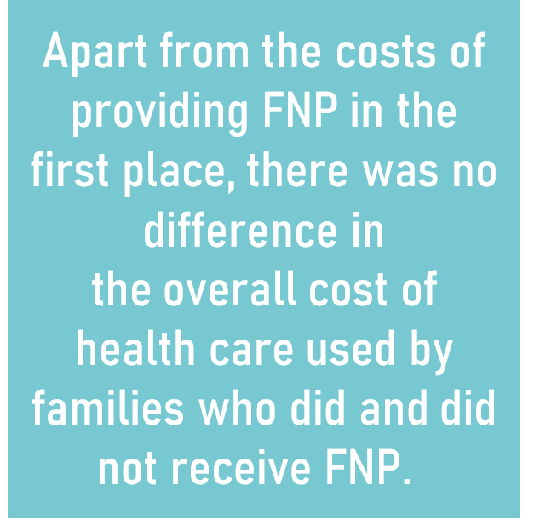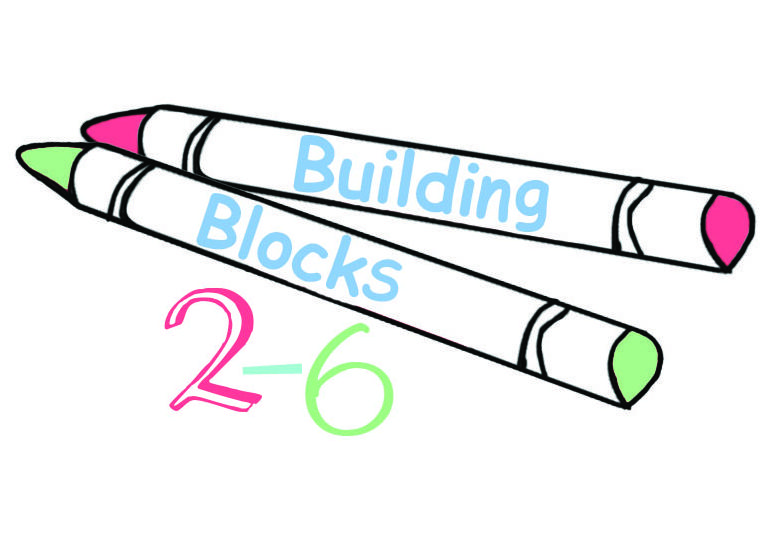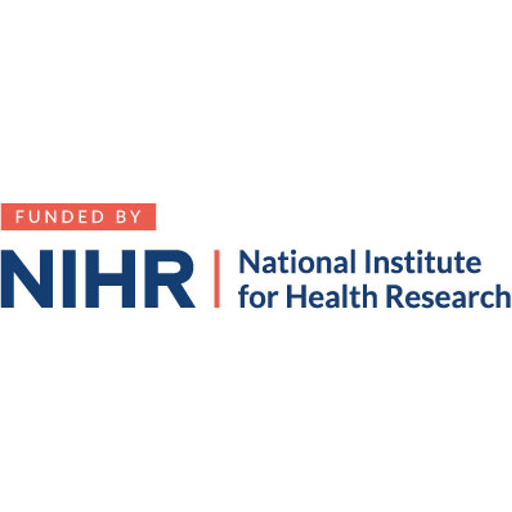Final Report
The NIHR report has been published and is available via this link.

This study was designed to evaluate the medium-term effectiveness of the
Family Nurse Partnership (FNP) programme. The FNP programme aims to support
teenagers expecting their first child and has been shown to reduce child abuse
and neglect in the longer term in US studies. There has previously been one
evaluation of the FNP programme in England - The Building Blocks Trial, but
this only looked at the short term effectiveness, this followed mothers and
their children until the child’s second birthday. This study has followed the same mothers and their children for a further five years until the child is 7 years old.
This study has used routine data to follow up mothers and children and has accessed the
medical, education and social care records of the mothers and their children. All mothers were given the opportunity to opt-out of this study.

The NIHR report has been published and is available via this link.
Download the summary of our results here.
The main results have been published - available here:

